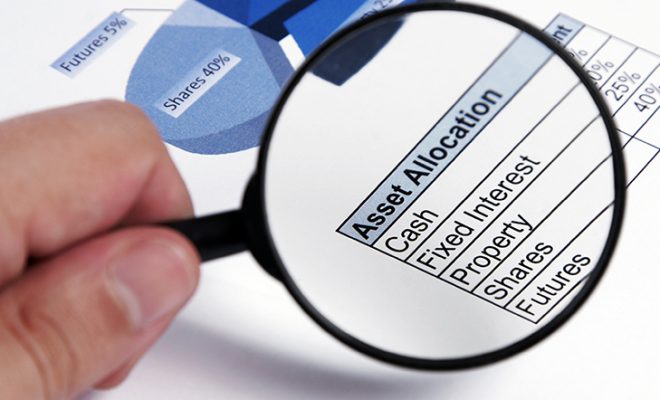How to Recession-Proof Your Retirement Portfolio

A recession is one of those external shocks that is completely out of your hands. It might cause your investments to run into losses. It can also result in loss of employment, slow growth for your investment, and utter panic. However, it is important to know that recessions are temporary and eventually the economy finds its way to recovery. With the right mix of planning, diversification, and smart investment choices, you can reduce your risk and maintain stability while it lasts.
It is also a good idea to speak with a qualified financial advisor to understand how to prepare for a recession, especially if you are nearing retirement or already retired. This article will also explore how to survive a recession and stabilize your finances.
Below are 5 ways to protect your retirement portfolio from a recession:
1. Make sure you have an emergency fund to rely on
Recession can bring unplanned and unexpected changes in your life. One of the major ones is the possibility of losing your job, which can impact your financial liquidity. It is also important to recognize that recessions and inflation often go hand in hand. While inflation may not directly cause a recession, prolonged periods of high inflation can create instability that eventually leads to one. During such times, the cost of living rises, and losing your job can be particularly difficult. This is why building and maintaining an emergency fund is essential. An emergency fund can help you cover your basic needs and obligations in the absence of your income. It can help you cover rent, groceries, utility bills, fees and subscriptions, insurance premiums, or healthcare expenses.
You need to save enough to cover at least six to eight months’ worth of your monthly expenses. However, this amount should be tailored to your monthly household expenses. Your lifestyle, monthly liabilities, the number of dependents in your family, and the general cost of living in your area can all help you decide how much you should set aside. For example, if you are a parent, your child’s education costs, especially if they attend a private school or college, will not stop during a recession. You need to be prepared to cover those costs even if your income takes a hit. It is equally important to keep your emergency money in an asset where it is easily accessible. High-yield savings accounts or liquid mutual funds can be good options. These vehicles allow you to access your money quickly without incurring penalties or triggering tax liabilities. Retirement accounts like a 401(k) or an Individual Retirement Account (IRA) are not suitable for emergency purposes. Early withdrawals from these accounts can result in penalties and taxes, which only make your financial situation more difficult during a crisis.
If you have not yet started building your emergency fund, you can start now before a recession hits. If you already have an emergency fund, take a moment to reassess whether it still meets your financial needs. If your expenses or financial goals and liabilities have increased since you last reviewed your fund, make sure to adjust your target accordingly to stay protected.
2. Spread your investments across different asset classes
Diversification can help you lower the risk imposed by recession. Economic downturns affect asset classes in different ways, so spreading your money across various types of investments can limit your risk and increase your chances of stabilizing your portfolio. A well-diversified portfolio can balance out the losses. For example, during a recession, growth stocks, such as information technology, energy, materials, luxury goods, etc., can experience price declines. In contrast, defensive sectors like utilities, consumer staples, healthcare, etc., tend to be more stable. These industries provide essential services that people continue to rely on, even in a recession, which is why their stocks may experience less volatility throughout a downturn.
It is also smart to diversify beyond stocks. Investing across different asset classes can further reduce the overall risk of your portfolio. Some popular options to consider can include precious metals like gold or silver, which often serve as a hedge against economic uncertainty. Real estate is another alternative investment. You can also consider U.S. Treasury bonds and other government securities. Commodities can also be a good option to diversify your portfolio.
A recession can induce some panic and push you to sell due to fear of loss and stop investing in the market. However, downturns can be profitable. When prices fall sharply, you get the opportunity to buy the dip. You can invest when stocks and other assets are undervalued and then benefit from the rebound once the economy starts to recover. However, you must note that timing the market is difficult, and trying to do it without guidance can be risky, so it is important to speak with a financial advisor and understand the best investments for a recession before you make any moves. Additionally, make sure to reevaluate your risk tolerance and recession investment strategy. Your portfolio must align with your goals, time horizon, and comfort level with risk. For instance, if you are retired, you may want to keep your equity exposure low to maintain stability. However, you can explore different sectors if you have some years left to retire.
3. Delay taking Social Security benefits in retirement
Unlike stocks or other market-linked investments that fluctuate with a recession, Social Security benefits are not directly impacted by a downturn. Even during a recession, retirees receiving Social Security can expect their monthly payments to continue as usual. Social Security payments are backed by the government and adjusted annually through a Cost-of-Living Adjustment (COLA). This adjustment is intended to help benefits keep up with inflation. However, if a recession leads to deflation or very low inflation, something that can happen when consumer demand slows, COLAs may be minimal or even non-existent for a given year. This can lower the benefits you receive. Still, the base benefit remains intact and continues to be paid, making Social Security one of the more reliable sources of income during tough economic times.
If you are retired, expect a recession in the near future, and have not yet started receiving benefits, you may consider a delay. Social Security benefits increase for each month you delay taking them beyond your full retirement age, up until age 70. This can work out to about 8% more per year, which can significantly boost your monthly income in later years. Delaying Social Security benefits can provide added financial security in the future, especially during a recession when your other investments might not perform well. While it is true that the total amount you receive over your lifetime may even out whether you claim early or wait, delaying can be a smart move in unpredictable times. The larger monthly checks you receive later can offer you a cushion when your other income sources decline. Having that extra income also offers greater peace of mind and less financial strain.
Of course, this strategy depends on your personal financial situation. If you are facing financial hardship or do not have other income sources to rely on, taking benefits earlier may be necessary. However, if you have a backup for the early years, delaying your Social Security benefits could be a wise decision in the long run. As always, it is helpful to discuss your options with a financial advisor.
4. Try not to panic and stay focused
Panicking is the last thing you should do during a recession. Feeling anxious about your money can make things worse and push you to react emotionally to market volatility, which can disrupt your personal life and long-term financial goals. Panic can coerce you to sell your investments out of fear or take on new loans. But staying invested, especially in a well-diversified portfolio, is usually a better option than pulling out entirely. Even if you are not able to add to your investments during tough times, simply letting things be can be a smart move. Markets are cyclical, and selling when things are down may result in locking in losses.
Talking to a financial advisor can help you stay grounded if you are feeling anxious about goals like retirement. A financial advisor can help you understand your position better. Hearing a recession investment strategy from a professional can reduce anxiety.
It is also important to protect your financial stability in other areas, particularly your credit score. With panic setting in, you may sometimes delay or miss a payment on mortgages, credit cards, or other loans to manage your cash flow better. But doing this can harm your credit score, which in turn can make it harder to qualify for financial help when you may actually need it most. A good credit score keeps doors open. Instead of rushing into decisions, take a moment to evaluate your situation. Make a list of your essential expenses, review your sources of income, and identify areas where you can cut back temporarily. Focus on maintaining good financial habits and work on a plan to ride out the downturn without shaking your long-term goals.
5. Suspend unnecessary expenses and be frugal
Cutting back on spending can be helpful when preparing for a recession. You may have to put some expenses on hold, at least temporarily, to ensure you have sufficient funds if and when recession strikes. A recession does not arrive without warning. You will often see signs of an economic slowdown in the news, stock market dips, or rising unemployment figures. When these indicators start to emerge, it is important to take them seriously. Speak to a financial advisor at the first sign of trouble. They can help you understand how vulnerable your current financial situation might be and offer advice to help you stay afloat.
In the meantime, you can take charge of the areas within your control, starting with your spending habits. Sit down with your family and discuss ways to make lifestyle adjustments together. It can help if people switch from credit card spending to cash or debit where possible. Credit cards can lead you to spend more than you should. On the other hand, using cash for day-to-day purchases forces you to be more aware of your limits. You can create a budget by listing your monthly income, followed by your fixed expenses such as utility bills, rent or mortgage payments, etc. Add in your variable expenses, like groceries, fuel, etc., and identify where you can make cuts. Once your budget is set, track it carefully.
It is also advised to delay big purchases until the economy stabilizes. Having extra cash on hand may be more practical if there is a chance you could lose your job. Avoiding new debt is equally important. Without job security, taking on fresh debt could put you at serious financial risk and make it harder to even cover your existing bills.
Additionally, consult with a financial advisor to help you analyze your financial standing. A financial advisor can help you determine how much you need to cut back, how your investments may need to shift, and how long your emergency savings would last in a worst-case scenario.
To conclude
It is important not to let a recession be a major financial setback in retirement planning. What matters most is making smart decisions at the right time and preparing yourself. Create a strategy that reflects your lifestyle and risk tolerance and can help you financially secure yourself and the people who rely on you. Make sure to speak to a trusted financial advisor who understands your personal circumstances and can help you develop a practical plan tailored to your income and future needs. A financial advisor can help you understand what to invest in before a recession, how to lower your expenses, and a lot more. This can offer some clarity and eliminate fear.
Use the free advisor match tool to get matched with experienced financial advisors who can help prepare and safeguard your portfolio from a recession. Answer some simple questions about your financial needs and get matched with 2 to 3 advisors who can best fulfill your financial requirements.










